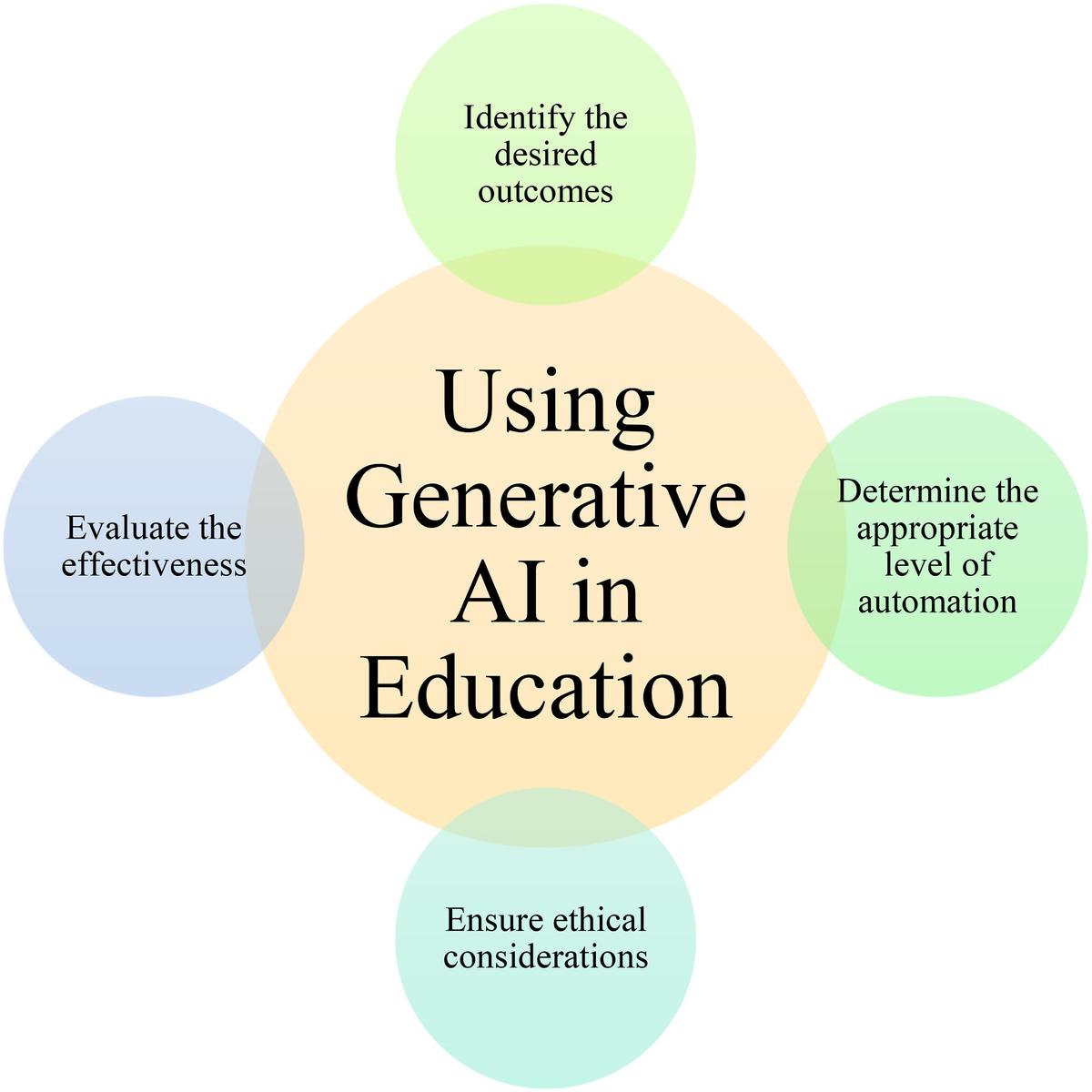From the Leadership Team

Julia Padgett, Deputy Principal
Generative artificial intelligence (AI) in schools
Recently, the Commonwealth Government released a draft framework on the use of generative artificial intelligence (AI) in schools.
The framework sets out the core elements and principles that will help guide schools and educators to use generative AI ethically, to improve teaching and learning, lift student outcomes, and reduce the administrative and workload burden in schools.
WHAT IS GENERATIVE AI?
Generative AI enables users to quickly generate new content based on a variety of inputs. Inputs and outputs to these models can include text, images, sounds, animation, 3D models, or other types of data. Examples of generative AI include programs such as ChatGPT, DALL.E and Aiva.
The core elements and principles identified in the draft framework are:
- Teaching and learning (impact, instruction, human cognition).
- Human and social wellbeing (wellbeing, diversity of perspective, human rights).
- Transparency (information, disclosure, explainability).
- Fairness (accessibility, non-discrimination, academic integrity, cultural and intellectual property, copyright).
- Accountability (human accountability, reliability, monitoring, contestability).
- Privacy and security (privacy and data protection, privacy disclosure, protection of student inputs, cybersecurity and resilience).
USING AI TOOLS AT KILVINGTON
A Kilvington AI working party has been meeting throughout Semester 1 to explore how generative AI can be used in classes. Many of the principles identified in the above core elements have already been considered by the working party.
We have created an AI policy which we were hoping to share with the community. However, we will now review this in light of the draft framework.
It is an exciting time for educators to be exploring the capability of generative AI tools, and our approach at Kilvington has been to trial them and reflect on their impact. For example, in Languages, we have been exploring how students can use ChatGPT to develop proofreading skills and to identify grammar inaccuracies.
Among teaching staff, there has been a significant amount of experimentation with planning, differentiation and brainstorming.
Some teachers are using AI to create models of work, and creating formative assessment tasks for students to complete. The possibilities are endless, and we will continue to experiment and share practice in the area of generative AI.
Nationally Consistent Collection of Data
In early August, we submitted our Nationally Consistent Collection of Data. This is an annual collection of information about students with disabilities.
Throughout the year, we make reasonable adjustments for students, and this information is compiled and submitted. The data enables authorities and the government to better understand how they can support schools.
Staffing news
This month, we will welcome Evangeline Wai to Kilvington as School Psychologist. Evangeline has most recently worked as a psychologist in Early Childhood Intervention and as an assessor psychologist for Max Solutions who provide assessment services for the Department of Education. Prior to this, she worked as a child and adolescent psychologist at Kids At Max. We look forward welcoming Evangeline to Kilvington soon.
Congratulations to Alice James and partner James who welcomed their first child, baby Isla, to the world early last week.




